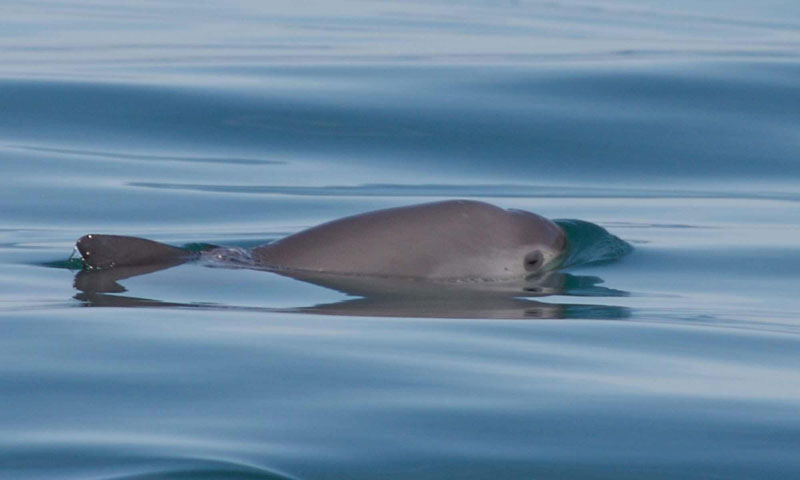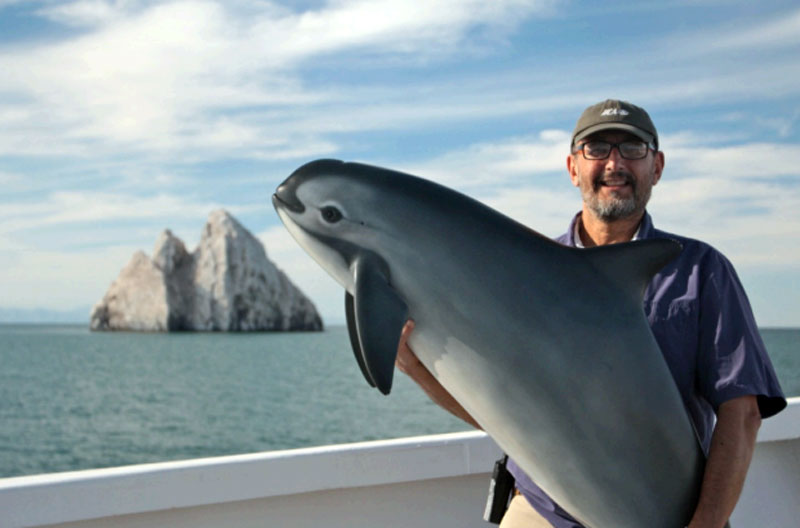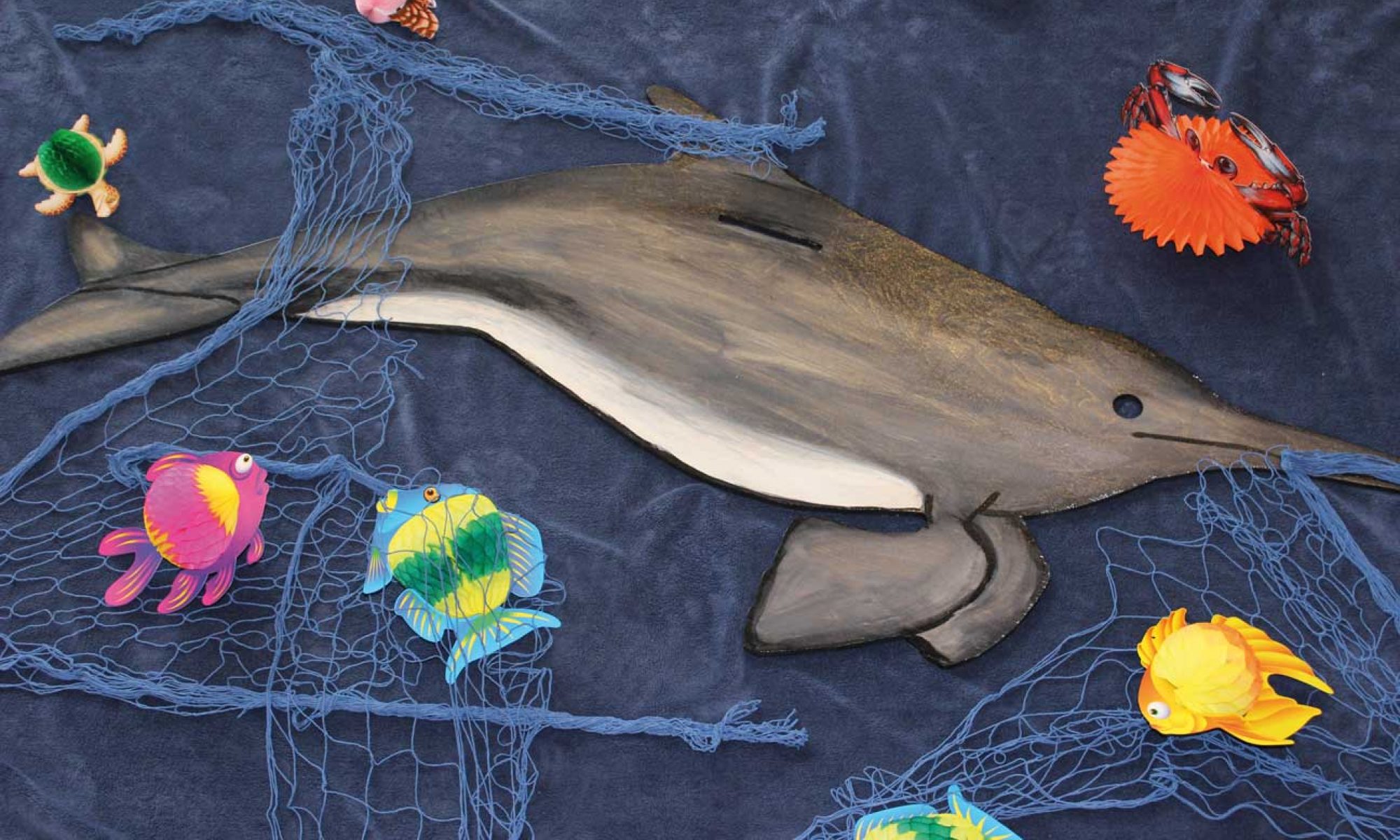For decades, news about the vaquita (Phocoena sinus) has become increasingly depressing as the number of animals has declined year after year. Now there is new hope, as the latest estimate of the vaquita population in the upper Gulf of California in Mexico has revealed that the current population of the species is between 10 and 13 individuals, including one or two calves. This means that, compared to previous surveys, no further animals have been lost, and the population may even have grown by a few individuals. It is important to note that these figures are estimates.

The survey was conducted by the Cetacean Specialist Group of the International Union for Conservation of Nature (IUCN) in May 2023 in the Gulf of California (https://iucn-csg.org/wp-content/uploads/2023/06/Vaquita-Survey-2023-Main-Report.pdf).
The vaquita population has fallen to a critical level, mainly due to illegal fishing for shrimp and totoaba, another highly endangered species. It is important to note that between 1997 and 2008, the vaquita population declined from 567 to 245 individuals. Later, from 2008 to 2015, the decline rate of the porpoise increased from 8% to 45% per year. The latest estimate in 2021 assumed that there would only be seven or eight adult animals and one or two calves left.
To save the vaquita from extinction, fishing has been banned in a so-called zero-tolerance zone in the northern part of the Gulf of California, but illegal fishing still continues there. In August 2022, the Mexican Navy deployed 193 concrete blocks with three-meter-high metal hooks in the area to catch nets. In addition, the Mexican Navy has collaborated with the Sea Shepherd Conservation Society and other organizations to closely monitor fishing, which has led to a 90 percent reduction in fishing in the zero-tolerance zone, according to the study.
"The concrete blocks, together with enforcement within the ZTA, appear to be an effective means of preventing gillnets," according to the IUCN report. "Based on this year's results, expanding the concept of concrete blocks and hooks to other areas where vaquitas are known to forage is an urgent priority."

It is equally important to find solutions for fishermen who need to find a way to earn a living. The non-governmental organization Pesca Alternativa de Baja California (Pesca ABC) is dedicated to finding such solutions by developing alternative fishing techniques that do not use gillnets and helping fishermen create markets for their vaquita-friendly fish products.
For seven years, YAQU PACHA and Nuremberg Zoo have been supporting various NGOs such as Vaquita CPR, Pesca ABC, and Museo de la Ballena, which are working tirelessly to protect the vaquita. This is a first ray of hope for all of us, the first in decades, and it is ultimately thanks to the perseverance of the many people who are committed to protecting the vaquita. It would be wrong to say that the vaquita is saved; we are still a long way from that. Rather, it is important to take this news as an opportunity to continue working to protect the species.

